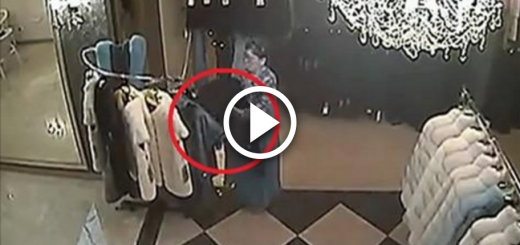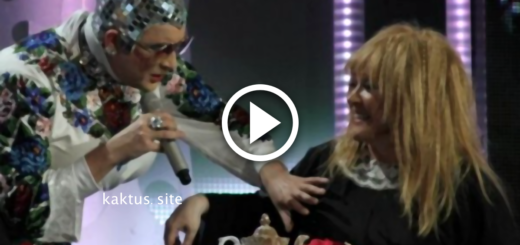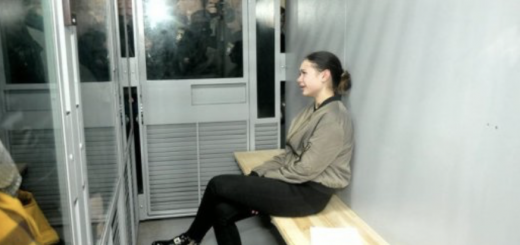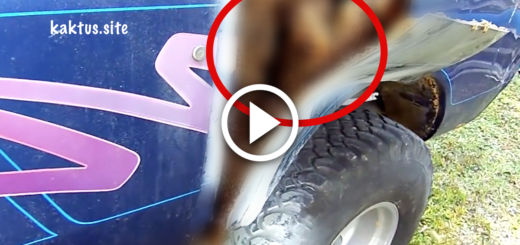Saturday evening, I drove my Honda to Newport, past Preston’s family estate—the one mortgaged through Romano Financial—and pulled into the Yacht Club’s valet area. The attendant looked at my car like it was contaminated but took the keys with professional courtesy. Inside, the club was exactly what I’d expected: dark wood, brass fixtures, and oil paintings of old men who’d probably never worked a day in their lives. It was the kind of place where membership was inherited, not earned.
I found Anna and Preston at the bar, surrounded by about fifteen people. Preston wore a blazer that probably cost more than most people’s monthly rent. Anna looked beautiful in a simple black dress, but I could see the tension in her shoulders.
«Dad!» Anna waved me over. «Everyone, this is my father, Anthony Romano.»
The introductions began. Preston’s father, Reginald Whitfield III, was a thin man with silver hair and the kind of handshake that was meant to measure your worth. Preston’s mother, Catherine, looked at my department store suit with barely concealed disdain.
«Mr. Romano,» Reginald said, «Preston tells me you work in banking.»
«That’s right.»
«Which institution?» Here we go.
«Romano Financial.»
«I’m not familiar with it. Local credit union?»
«Something like that.»
Catherine Whitfield joined the conversation. «How lovely that you could take time off for this. Banking hours must be so restrictive.»
Before I could answer, one of Preston’s law school friends jumped in. «Wait, Romano Financial? Is that the place with the branch next to the Pizza Palace on Federal Hill?»
Several people laughed. Actually laughed.
«Banking services in ethnic neighborhoods,» another friend said. «Must be interesting clientele.»
Anna’s face was burning red. «Dad’s been with the same company for 25 years.»
«Loyalty is admirable,» Reginald interrupted, «though I imagine the advancement opportunities in community banking are somewhat limited.»
Preston put his arm around Anna. «Mr. Romano’s done well for himself. Anna managed to get through Stanford, after all.»
Managed to get through Stanford, like it was a miracle that someone from our family could achieve something so basic.
«Yes,» Catherine added. «Anna mentioned scholarships were involved?»
Anna opened her mouth to correct this, but I caught her eye and shook my head slightly. Let them think what they want to think.
«Education is important in our family,» I said simply.
«Of course,» Reginald said. «Preston’s told us about your resourcefulness regarding the wedding venue situation. Fifty thousand dollars is quite a stretch for a family in your position. We appreciate the sacrifice.»
The sacrifice? Like I was selling blood to afford their son’s wedding.
«Actually,» Preston said, raising his voice so the whole group could hear, «we’re still working out some logistics. The venue we want requires a significant investment from both families.»
One of his mother’s friends, an older woman dripping with diamonds, leaned in conspiratorially. «The Chandler is divine, but so expensive. Maybe you should consider something more… accessible? I know a lovely place in Cranston that does wonderful ethnic weddings.»
Ethnic weddings. I felt my jaw tighten.
«The thing is,» Preston continued, «Anna’s family is dealing with some financial constraints. We’re trying to find a solution that works for everyone.» He was publicly humiliating us, making our supposed poverty part of the entertainment.
«Perhaps,» Catherine suggested, «you could have a lovely ceremony at Anna’s family church and just do cocktails afterward. So much more intimate than these elaborate affairs.»
Anna looked like she wanted to disappear. This was her future family, discussing her wedding like it was a charity case they were graciously managing.
«You know,» Reginald said, «I remember when the Costellos married their daughter to that Portuguese fisherman. They had a beautiful ceremony at St. Maria’s and a reception in the church hall. Paper plates, but lovely flowers. Sometimes simple is best.»
Paper plates. They were suggesting paper plates for my daughter’s wedding.
Preston laughed. «Well, we’re not quite at the paper plate stage yet, though Mr. Romano might need to get creative with the financing.» The group chuckled. My daughter’s financial situation was dinner party humor for these people.
That’s when something inside me shifted. I’d spent the evening listening to these people mock my family, my background, and my supposed limitations. I’d watched them treat Anna like she should be grateful for their son’s attention. I’d heard them reduce my daughter’s wedding to a budget problem they were benevolently trying to solve. But most importantly, I’d heard Preston say the words that would seal his fate.
«Your immigrant family needs to learn their place in America.»
The conversation had gotten quiet enough that his words carried across the room. I pulled out my phone and typed a quick text to Maria. «Yacht Club. Now. Bring the Whitfield files, foreclosure paperwork, and two board members. It’s time.»
I looked around the group, all these people so certain of their superiority, so comfortable in their assumptions about who belonged where.
«You know,» I said quietly, «you’re absolutely right about one thing.»
«What’s that?» Reginald asked.
«Fifty thousand dollars is quite a lot of money.»
Preston smiled, thinking I was conceding defeat.
«Especially,» I continued, «when you’re about to lose $4.2 million.»
The laughter stopped. The confused silence lasted about ten seconds before Reginald found his voice. «I’m sorry, what did you say about $4.2 million?»
«Dad,» Anna whispered, «what are you talking about?»
Before I could answer, I saw Maria entering the club’s main dining room, followed by two men in expensive suits. She spotted me immediately and headed over, carrying a leather portfolio that everyone in banking would recognize as the kind that holds very important documents.
«Mr. Romano,» she said as she approached, «the emergency board meeting is complete. We have your authorization for the Whitfield account action.»
The blood drained from Reginald’s face. «Whitfield account?»
Maria looked around the group with professional politeness. «Mr. Reginald Whitfield, I’m Maria Romano, Vice President of Operations at Romano Financial. We’ve been handling your family’s mortgage for the past eight years.»
Catherine’s diamond bracelet clinked against her wine glass as her hand started trembling. «There must be some mistake.»
«No mistake,» said one of the men with Maria. «I’m James Patterson, chairman of Romano Financial’s board of directors. Mr. Romano, we’ve approved the action you requested. The account shows clear character clause violations.»
Preston looked confused. «Wait, I don’t understand. Mr. Romano, you said you work at Romano Financial, not…»
«I don’t work at Romano Financial,» I said calmly. «I own Romano Financial.»
The silence that followed was absolute. You could hear the ice clinking in glasses from three tables away. Anna stared at me like I had just announced I was from Mars.
«Dad, what?»
«Romano Financial Group,» Maria continued, opening her portfolio, «has 80 branches across New England and $2 billion in assets. Your father founded it 26 years ago with a $10,000 loan and built it into one of the region’s largest privately held banking institutions.»
She handed me a document. «The Whitfield estate mortgage, $4.2 million, originated in 2019. Current status: in violation of character clauses due to discriminatory behavior documented this evening.»
Preston’s face had gone completely white. «Character clauses?»
«It’s a standard provision in all Romano Financial mortgage contracts,» said the board chairman. «Borrowers agree to maintain community standards consistent with the bank’s values. Discrimination based on national origin, economic status, or ethnic background constitutes grounds for immediate loan acceleration.»
Reginald found his voice. «This is ridiculous. You can’t call a mortgage because of a social conversation.»
«Actually,» Maria said, «Mr. Romano has full discretionary authority over all lending decisions. Given tonight’s documented statements regarding ‘ethnic neighborhoods,’ ‘families like yours,’ ‘paper plates for ethnic weddings,’ and the direct quote about ‘immigrant families needing to learn their place in America,’ the bank considers this a clear violation of community standards.»
The older woman with the diamonds—the one who’d suggested ethnic weddings—looked like she was about to faint.
«Furthermore,» Maria continued, «our investigation revealed that Preston Whitfield’s trust fund, currently valued at approximately $600,000, is also managed through Romano Financial’s private banking division.» Preston made a choking sound.
«Which brings us to the compliance issue,» said the board chairman. «Trust fund management requires character verification. Mr. Whitfield’s behavior raises serious questions about his fitness to manage inherited assets responsibly.»
Anna was staring at me with a mixture of shock, confusion, and something that might have been pride. «Dad, is this real? Are you really…?»
«Anna,» I said gently, «your Stanford tuition was four years, $320,000. Paid in full, no loans. The reason I drive an old Honda isn’t because I can’t afford a new car. It’s because I don’t need a new car to know who I am.»
Catherine Whitfield finally spoke, her voice barely above a whisper. «You’ve been lying to us this entire time.»
«I haven’t lied about anything,» I said. «You assumed I was poor because I dress simply and drive an old car. You assumed I was powerless because I live in Federal Hill. You assumed I was beneath you because my family came from Italy instead of inheriting wealth from ancestors who never had to work for anything.»
«But why didn’t you tell us?» Preston asked desperately.
«Because I wanted to see who you really were. I wanted to know if you loved my daughter enough to respect her family, regardless of what you thought our social status was. Instead,» I gestured around the room, «I watched you spend eight months treating us like charity cases. I heard you laugh about ethnic neighborhoods and suggest paper plates for Anna’s wedding. I listened to you demand $50,000 from a family you considered financially inferior. And tonight, I heard you tell me that my immigrant family needed to learn our place in America.»
Reginald tried to regain some composure. «Mr. Romano, if there’s been a misunderstanding…»
«No misunderstanding,» I said. «You showed me exactly who you are, all of you. And now I’m showing you who I am.»
Maria handed me another document. «Loan acceleration notice. Twenty-four-hour demand for full payment. Four-point-two million dollars due Monday at 5 p.m. Legal grounds: character clause violations, as documented by bank officers present this evening.»
«You can’t do this,» Catherine said, panic creeping into her voice.
«Mrs. Whitfield,» said the board chairman, «your family signed the mortgage agreement. The character clauses are clearly defined. Your son’s behavior tonight—demanding money from families he considers inferior, making disparaging comments about ethnic communities, and treating potential in-laws with contempt based on perceived economic status—violates multiple provisions.»
Preston turned to Anna desperately. «Anna, you can’t let him do this. We’re getting married.»
«Are we?» Anna asked quietly. «Because five minutes ago, you were entertaining your friends by talking about how my family couldn’t afford to give me a proper wedding. You told them my immigrant family needed to learn our place in America.»
«I was just… that was just…»
«Just what, Preston?» For the first time in eight months, I saw my daughter’s backbone—the strength that got her through Stanford, the Romano steel that I’d always known was there.
«Anna,» Preston pleaded, «your father is overreacting. This is all a misunderstanding.»
«The misunderstanding,» Anna said, her voice getting stronger, «was thinking that I needed to apologize for my family to be worthy of yours.» She turned to me. «Dad, how long have you been planning this?»
«Since the moment he told me my immigrant family needed to learn our place in America.»
























































